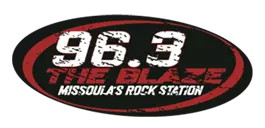
City officials: Property taxes at “breaking point” under state system
Martin Kidston
(Missoula Current) With limited time to make such points and a new tax calculator that breaks down the statewide shift in taxes away from corporations and industry to homeowners, members of the City Council this week continued to voice the frustration of homeowners facing a sharp increase in property taxes.
Mayor Jordan Hess said the tax burden in Missoula County now places 65% of the cost on property owners while large corporations only account for around 42%. Two decades ago, it was the other way around.
Back then, Hess said the state's tax system was largely rooted in extractive industries and in Missoula County, that included a number of lumber mills that ran multiple shifts each day, along with a pulp and paper mill.
“We don't have that economy anymore,” Hess said. “The narrative around property tax reform still exists as it did a year ago. But there's a new narrative that is more damaging, more dangerous, more destructive to (residential), and that's this acute burden shift from the state's reappraisal cycles.”
Along with a change in industry, Hess said the state increased the appraised value of homes in Missoula by an average of 35% in a single year – a jump he described as unprecedented.
The Legislature's failed to heed the warnings from the Montana Department of Revenue was also unprecedented, he added. Instead of acting to reduce the tax rate on residential properties from 1.35% to 0.94% as a result of the spike in appraised values, the Legislature did nothing.
“They were either asleep at the switch or acting quietly and maliciously,” Hess said. “It would be a lot more fair and a lot more reasonable if Republicans in the Legislature went to the old stand-by narrative that the job creators deserve a lower tax rate, that they'll create more jobs and it'll flow down through the economy. Instead, they quietly failed to act and quietly shifted this tax burden to (residential).”
While residential property owners are likely to see an increase in taxes, most industries will enjoy a tax cut, Hess said. That includes pipelines, metal mines, pollution control, business equipment, railroads and airlines, and utilities.
He suggested that was inherently unfair and strikes at the heart of the state's intentionally unbalanced tax system.
“The residential property tax increases in Missoula are going to pay for a tax decrease for Charter-Spectrum,” said Hess. “The only thing that's changed about Charter-Spectrum in the last dozen years is that they've changed their name three times and raised their rates. That's what your property taxes are paying for. That's an untenable situation the slate Legislature has created.”
Big breaks for corporations, increase for homeowners
The shift in taxes to residential has led leaders from a number of Montana cities and counties to push back. It also has prompted criticism from former Montana Department of Revenue chief Dan Bucks, who has described the state's current tax system as being rigged against property owners.
Recently, Bucks developed a new tax calculator dubbed “Tax Shift Montana,” which breaks down the shift in taxes and where the money goes. It also questions “Why doesn't the state of Montana have a tool to help me figure out where my taxes are going?”
Council member Stacie Anderson put the new calculator to the test and said she was surprised at the results. According to the calculation, she's anticipating a $704 tax increase.
Of that, she said $238 is going to the state while $43 will go to local government and schools. Another $512 represents tax cuts for other classifications like utilities and pipelines, and $431 in cuts to large corporations.
“It represents the narrative we're trying to highlight – this system is fundamentally broken,” said Anderson. “You cannot continue to give breaks to other tax classification and continue to shoulder property and small commercial with the burden.”
With taxation emerging as a growing concern in cities and counties across the state, local elected officials have begun to dig deeper into the system, especially as they struggle to balance their respected budgets each year.
Council member Gwen Jones said that annual effort is growing more and more difficult as the tax shift continues to build.
“A lot folks on council have spent a lot of time studying property taxes to understand why we have such hellish summer budget sessions, because they are,” said Jones. “It's a terrible place to be in, trying to make these decisions when we're insufficiently funded and yet have great needs in Missoula.”
In City Council debates, some Democratic Socialists often use the term “corporate welfare” in their opposition to certain city programs, even though those programs fund the things they most want to see. While Jones said she disagrees with their view, the term corporate welfare fits well when applied to the state.
She said taxpayers need to start paying attention.
“A lot of what the Legislature did this last year, I think they cut all corporate taxes except solar panels,” said Jones. “To have those tax cuts and passing that cost on to residential and commercial property owners is significant. Corporate welfare is a phrase that can be applied to that.”
Council member Mike Nugent said that while the state is cutting corporate taxes, others are forced to pay the difference one way or another, and that's falling more and more on property owners.
“The big takeaway when you start to see the shifts, the expenses of local government don't go away. Someone is paying for these things,” said Nugent. “That's also true of things they cut at the state and push down to us as an unfunded mandate. When things are cut like that at the state level, the need doesn't go away, it just gets shifted to someone else.”



